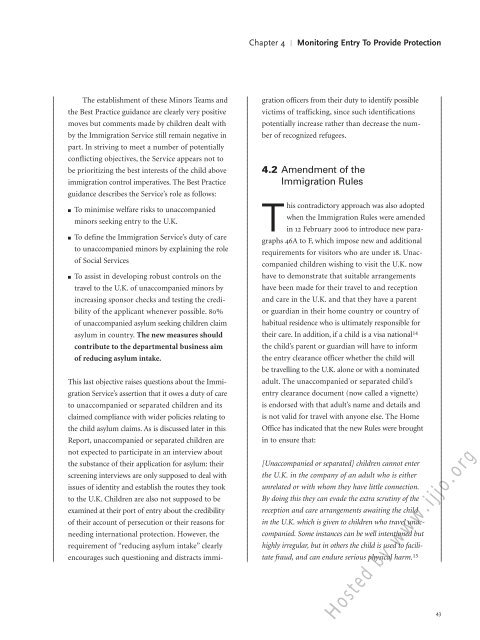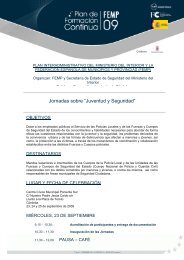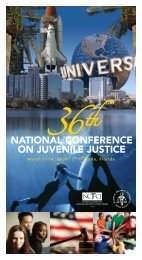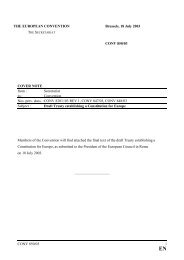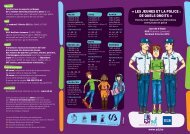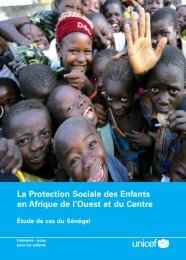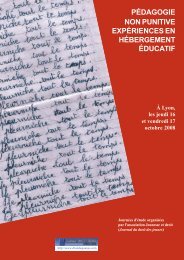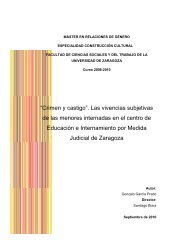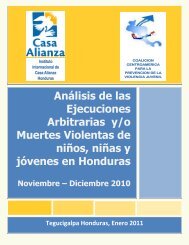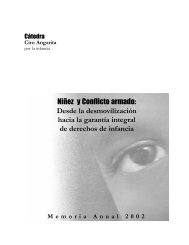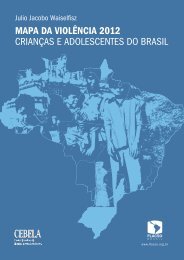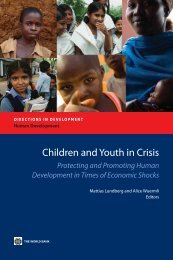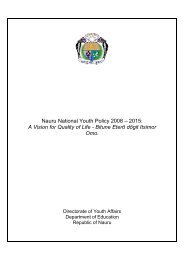Hosted by www.ijjo.org
Hosted by www.ijjo.org
Hosted by www.ijjo.org
Create successful ePaper yourself
Turn your PDF publications into a flip-book with our unique Google optimized e-Paper software.
Chapter 4 | Monitoring Entry To Provide Protection<br />
The establishment of these Minors Teams and<br />
the Best Practice guidance are clearly very positive<br />
moves but comments made <strong>by</strong> children dealt with<br />
<strong>by</strong> the Immigration Service still remain negative in<br />
part. In striving to meet a number of potentially<br />
conflicting objectives, the Service appears not to<br />
be prioritizing the best interests of the child above<br />
immigration control imperatives. The Best Practice<br />
guidance describes the Service’s role as follows:<br />
■<br />
■<br />
■<br />
To minimise welfare risks to unaccompanied<br />
minors seeking entry to the U.K.<br />
To define the Immigration Service’s duty of care<br />
to unaccompanied minors <strong>by</strong> explaining the role<br />
of Social Services<br />
To assist in developing robust controls on the<br />
travel to the U.K. of unaccompanied minors <strong>by</strong><br />
increasing sponsor checks and testing the credibility<br />
of the applicant whenever possible. 80%<br />
of unaccompanied asylum seeking children claim<br />
asylum in country. The new measures should<br />
contribute to the departmental business aim<br />
of reducing asylum intake.<br />
This last objective raises questions about the Immigration<br />
Service’s assertion that it owes a duty of care<br />
to unaccompanied or separated children and its<br />
claimed compliance with wider policies relating to<br />
the child asylum claims. As is discussed later in this<br />
Report, unaccompanied or separated children are<br />
not expected to participate in an interview about<br />
the substance of their application for asylum: their<br />
screening interviews are only supposed to deal with<br />
issues of identity and establish the routes they took<br />
to the U.K. Children are also not supposed to be<br />
examined at their port of entry about the credibility<br />
of their account of persecution or their reasons for<br />
needing international protection. However, the<br />
requirement of “reducing asylum intake” clearly<br />
encourages such questioning and distracts immigration<br />
officers from their duty to identify possible<br />
victims of trafficking, since such identifications<br />
potentially increase rather than decrease the number<br />
of recognized refugees.<br />
4.2 Amendment of the<br />
Immigration Rules<br />
This contradictory approach was also adopted<br />
when the Immigration Rules were amended<br />
in 12 February 2006 to introduce new paragraphs<br />
46A to F, which impose new and additional<br />
requirements for visitors who are under 18. Unaccompanied<br />
children wishing to visit the U.K. now<br />
have to demonstrate that suitable arrangements<br />
have been made for their travel to and reception<br />
and care in the U.K. and that they have a parent<br />
or guardian in their home country or country of<br />
habitual residence who is ultimately responsible for<br />
their care. In addition, if a child is a visa national 14<br />
the child’s parent or guardian will have to inform<br />
the entry clearance officer whether the child will<br />
be travelling to the U.K. alone or with a nominated<br />
adult. The unaccompanied or separated child’s<br />
entry clearance document (now called a vignette)<br />
is endorsed with that adult’s name and details and<br />
is not valid for travel with anyone else. The Home<br />
Office has indicated that the new Rules were brought<br />
in to ensure that:<br />
[Unaccompanied or separated] children cannot enter<br />
the U.K. in the company of an adult who is either<br />
unrelated or with whom they have little connection.<br />
By doing this they can evade the extra scrutiny of the<br />
reception and care arrangements awaiting the child<br />
in the U.K. which is given to children who travel unaccompanied.<br />
Some instances can be well intentioned but<br />
highly irregular, but in others the child is used to facilitate<br />
fraud, and can endure serious physical harm. 15 43<br />
<strong>Hosted</strong> <strong>by</strong> <strong>www</strong>.<strong>ijjo</strong>.<strong>org</strong>


